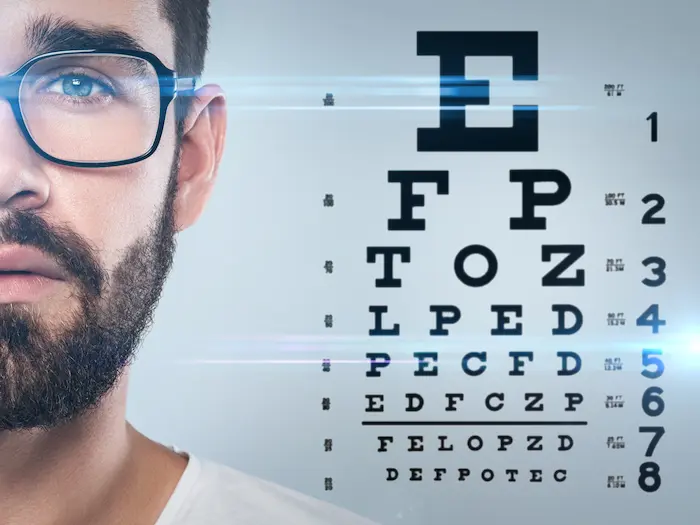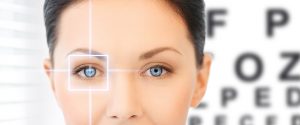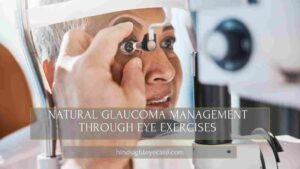Improve your Eyesight
How can you improve your eyesight? Our eyes are arguably our most important sensory organ, allowing us to navigate the world and experience it in rich detail. However, various factors, from age to environment, can take a toll on our vision over time. Fortunately, there are several steps we can take to improve our eyesight and maintain healthy eyes throughout our lives.
In this comprehensive guide, we’ll explore 8 effective ways to improve your eyesight and support long-term eye health. From incorporating key vitamins and minerals into your diet to practicing protective habits and managing chronic conditions, we’ll cover a wide range of strategies to help you see the world more clearly.
8 Ways to Improve Your Eyesight
1. Get Enough Key Vitamins and Minerals
Proper nutrition is essential for improving your eyesight and supporting overall eye health. Certain vitamins and minerals, such as Vitamins A, C, and E, as well as the mineral zinc, are particularly important for eye health.
These nutrients act as antioxidants, helping to prevent macular degeneration – a condition where the macula, the part of the eye responsible for central vision, begins to deteriorate. By incorporating a variety of colorful fruits and vegetables into your diet, you can ensure that your eyes are getting the nourishment they need.
Some excellent food sources for these crucial eye-health nutrients include carrots, red peppers, broccoli, spinach, strawberries, sweet potatoes, citrus fruits, and salmon (for its omega-3 fatty acids). By making these nutrient-dense foods a regular part of your meals, you can support improved eyesight and reduce your risk of vision-related issues.
2. Don’t Forget the Carotenoids
In addition to the vitamins and minerals mentioned above, carotenoids like lutein and zeaxanthin also play a crucial role in improving your eyesight. These powerful antioxidants are found in the retina, the light-sensitive part of the eye, and help protect it from damaging ultraviolet and blue light.
Lutein and zeaxanthin can be found in leafy green vegetables, broccoli, zucchini, and even eggs. Incorporating these foods into your diet, or considering a supplement, can help boost the pigment density in the macula, further shielding your eyes from harmful light exposure and supporting improved eyesight.
3. Stay Fit and Active
Maintaining a healthy weight and staying physically active can also contribute to improving your eyesight. This is particularly important when it comes to preventing and managing type 2 diabetes, a condition that can lead to diabetic retinopathy.
Diabetic retinopathy is a complication that occurs when high blood sugar levels damage the tiny blood vessels in the retina. This can cause them to leak, leading to vision impairment and even blindness. By keeping your blood sugar levels under control through diet, exercise, and medication (if necessary), you can lower your risk of developing this vision-threatening condition and improve your eyesight.
Regular physical activity can also help reduce inflammation throughout the body, which is linked to various eye conditions. So, whether it’s a brisk walk, a swim, or a yoga session, incorporating exercise into your routine can be a powerful tool for improving your eyesight and overall eye health.
4. Manage Chronic Conditions
Certain chronic health conditions, such as high blood pressure and multiple sclerosis, can also have a direct impact on your eyesight. These conditions are often associated with chronic inflammation, which can harm the delicate structures of the eye.
For example, high blood pressure can damage the blood vessels in the retina, leading to vision problems. Multiple sclerosis, on the other hand, can cause inflammation of the optic nerve, leading to pain and even complete vision loss.
To improve your eyesight and prevent further complications, it’s essential to work closely with your healthcare provider to effectively manage any underlying chronic conditions. This may involve lifestyle changes, such as a heart-healthy diet and regular exercise, as well as the appropriate medications.
By taking a proactive approach to managing your chronic health conditions, you can help protect your eyes and maintain improved eyesight over the long term.
Here you like How Hindsight Eye Care’s Advanced Eye Exam Technology Benefits Patients in The Villages Metro Area
5. Wear Protective Eyewear
Protecting your eyes from potential hazards is a crucial step in improving your eyesight and preventing vision-related injuries. Whether you’re participating in sports, working with power tools, or conducting experiments in a laboratory, it’s essential to wear the appropriate protective eyewear.
Tough, durable goggles made with polycarbonate material are often the best choice, as they are up to 10 times stronger than regular plastic. These protective lenses can shield your eyes from flying debris, sharp objects, and even the impact of a stray elbow during a game.
Beyond protecting your eyes from immediate harm, improving your eyesight also requires shielding them from the long-term effects of ultraviolet (UV) radiation. Wearing sunglasses that block 99-100% of UVA and UVB rays can help prevent conditions like cataracts, macular degeneration, and pterygium (a growth of tissue over the white part of the eye).
Incorporating protective eyewear into your daily routine is a simple yet effective way to improve your eyesight and safeguard your eyes from potential threats.
6. Practice the 20-20-20 Rule
Spending long hours staring at digital screens, whether it’s a computer, smartphone, or tablet, can put a significant strain on your eyes. This can lead to a condition known as digital eye strain, which can cause symptoms like blurred vision, dry eyes, and headaches.
To help improve your eyesight and alleviate the strain on your eyes, it’s important to follow the 20-20-20 rule. This simple technique involves taking regular breaks from your screen and focusing your gaze on something else.
Every 20 minutes, take a 20-second break and look at something that’s at least 20 feet away. This short break allows your eyes to relax and refocus, helping to reduce the symptoms of digital eye strain and improve your eyesight over time.
Incorporating the 20-20-20 rule into your daily routine can be a game-changer for improving your eyesight and maintaining healthy eyes, especially if you spend a significant portion of your day in front of a screen.
7. Quit Smoking
Smoking is well-known for its negative impact on overall health, but it also has a detrimental effect on your eyes and eyesight. Smokers are at a significantly higher risk of developing conditions like cataracts and age-related macular degeneration, both of which can lead to vision loss.
The good news is that quitting smoking can have a positive impact on your eyes and improve your eyesight over time. Within the first few hours of quitting, your body can begin to recover from the damage caused by tobacco, and the longer you abstain, the more your blood vessels and overall eye health will benefit.
Prioritizing improved eyesight by kicking the smoking habit can have a profound impact on your vision and your overall well-being. It’s a challenging but worthwhile step towards maintaining healthy eyes for years to come.
8. Keep Your Hands and Lenses Clean
Our eyes are highly vulnerable to germs and infections, and even minor irritants can have a significant impact on our eyesight. That’s why it’s crucial to maintain good hygiene practices when it comes to our eyes and the products we use to care for them.
Regularly washing your hands before touching your eyes or handling contact lenses is an essential step in improving your eyesight and preventing eye infections. Proper hand hygiene helps to minimize the transfer of bacteria and other contaminants that could lead to irritation, inflammation, or more serious vision-related issues.
It’s also crucial to follow the manufacturer’s instructions for cleaning and disinfecting your contact lenses. Failing to properly maintain your contact lenses can lead to the buildup of harmful bacteria, increasing your risk of developing a potentially vision-threatening eye infection.
By keeping your hands and lenses clean, you can play an active role in improving your eyesight and protecting the long-term health of your eyes.
FAQs:
What are the best vitamins and minerals for eye health?
The key vitamins and minerals that are essential for improving your eyesight and supporting overall eye health include Vitamins A, C, and E, as well as the mineral zinc. These nutrients contain powerful antioxidants that can help prevent conditions like macular degeneration.
How can exercise and maintaining a healthy weight help with improving your eyesight?
Staying fit and at a healthy weight can lower your risk of developing type 2 diabetes, which can lead to a vision-threatening condition called diabetic retinopathy. Exercise also helps reduce inflammation, which is linked to various eye problems.
What is the 20-20-20 rule, and how can it improve your eyesight?
The 20-20-20 rule is a simple technique to help reduce eye strain from staring at digital screens. Every 20 minutes, you should look at something 20 feet away for 20 seconds. This allows your eyes to relax and refocus, helping to improve your eyesight and alleviate symptoms of digital eye strain.
How can quitting smoking improve your eyesight?
Smoking significantly increases the risk of developing conditions like cataracts and age-related macular degeneration, which can lead to vision loss. Quitting smoking can help improve your eyesight by allowing your eyes to recover from the damaging effects of tobacco over time.
Why is it important to know your family’s eye health history?
Certain eye conditions, such as glaucoma and retinal degeneration, can have a hereditary component. Knowing your family’s eye health history can help you take proactive steps to improve your eyesight and prevent the onset of these vision-threatening conditions through early screening and lifestyle modifications.




